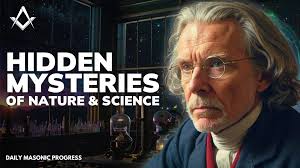
Unveiling the Hidden Mysteries of Science: Surprising Discoveries That Challenge Our Understanding
In a rapidly evolving scientific landscape, researchers continue to unveil astonishing discoveries that challenge our long-held beliefs, shedding light on phenomena previously unknown or misunderstood. These breakthroughs not only expand the boundaries of knowledge but also spark fresh debates about the very nature of science itself.
Science has long been considered a pursuit of objective truth, driven by evidence, experimentation, and observation. But what many people don’t realize is that the process of scientific discovery is often more complex, uncertain, and sometimes even serendipitous than we tend to think. Recent advancements in multiple scientific fields—ranging from quantum physics to ecology—are revealing a more intricate and interconnected reality that blurs the lines between disciplines and invites us to rethink the very nature of science.
The Quantum Quandary: Where Science Meets Uncertainty
One of the most profound revelations in recent years comes from the world of quantum physics, a field that has long puzzled scientists with its inherent paradoxes. In quantum mechanics, particles can exist in multiple states simultaneously, defying classical logic and challenging our understanding of reality. A new study from physicists at MIT suggests that the boundaries between quantum and classical realms may not be as distinct as previously thought. Researchers have demonstrated that quantum behavior may extend further into macroscopic systems, opening the door for quantum phenomena to influence the “everyday world” in ways we had not imagined. This revelation forces us to confront uncomfortable questions: Is reality truly as objective as we perceive it, or is the universe more fluid and subjective than science has led us to believe?
The Ecological Web: Complexity Beyond Comprehension
In the realm of biology and ecology, scientists are uncovering unexpected relationships in nature that defy the reductionist approach traditionally favored in scientific studies. Recent research shows that ecosystems are far more interconnected than previously recognized, with species sharing symbiotic relationships that were once considered negligible. For example, studies of forest ecosystems have revealed how fungi networks beneath the soil—often referred to as the “Wood Wide Web”—serve as a crucial communication system, allowing plants to exchange nutrients and even warn each other of impending dangers. These findings reveal that the complexity of nature is far greater than we had assumed, suggesting that the interconnectedness of life forms may be essential to understanding the true nature of ecosystems.
Citizen Science and the Democratization of Discovery
Another striking development in modern science is the growing role of “citizen scientists”—ordinary people without formal scientific training—who contribute valuable data to major research projects. With the proliferation of smartphones and online platforms, these volunteers are helping track everything from the migration patterns of birds to the genetic sequences of rare diseases. This democratization of science is not only accelerating discoveries but is also reshaping how we think about scientific authority. As more people engage with the scientific process, the line between experts and the general public is becoming increasingly blurred, challenging traditional hierarchies and encouraging a more collaborative approach to discovery.
Science Is Not a Fixed Path
What all these revelations point to is that science is not a linear, straightforward pursuit of truth; rather, it is a constantly evolving, iterative process that thrives on uncertainty, collaboration, and openness to new possibilities. As scientific knowledge grows, so too does the understanding that there are many unknowns yet to be uncovered. The “known unknowns” of science are vast, and the more we learn, the more we realize how little we truly understand.
In the end, science is less about arriving at definitive answers and more about questioning the questions themselves. Each new discovery, while adding to our understanding of the world, often brings with it new mysteries—reminding us that the nature of science is not only about knowledge but also about embracing the unknown.
Leave a Reply